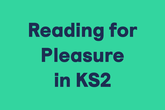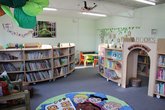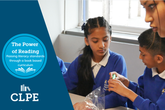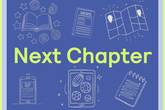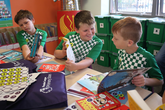Reading for pleasure resources for schools
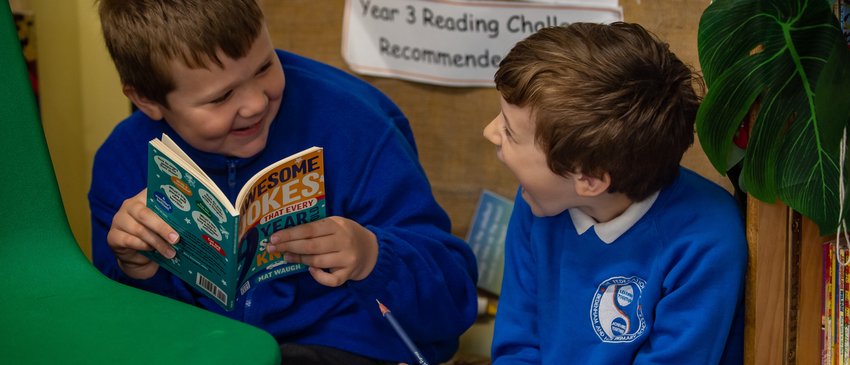
Our latest Reading for pleasure research
Our latest research report, taken from our 2025 Annual Literacy Survey, supported by Twinkl, shows a continued decline in children and young people’s reading enjoyment and daily reading habits, albeit at a slower pace of decline than was recorded in the 2024 research.
The 2025 report reflects the insights of 114,970 children and young people in the UK aged 5 to 18, and shows that the picture remains just as concerning one year on. The results show the scale and severity of the reading for pleasure crisis our nation’s children are currently facing – and the potential consequences for their confidence, mental wellbeing, reading skills and success at school.
Together, we can turn the page on the reading for pleasure crisis
However, despite showing a decline, the insights also show us what motivates children and young people to read. These valuable key motivators offer a window into what might re-engage those with the lowest levels of reading enjoyment and suggests that re-engagement is possible.
READ OUR 2025 RESEARCH REPORT IN FULL
Create a culture of reading for pleasure in your school
We are committed to our continued support of teachers and practitioners in pursuit of our collective goal to empower all children with the literacy skills they need to thrive.
Discover high-quality reading for pleasure resources, expert-led CPD and training opportunities, and exciting ways primary schools can transform your libraries and reading spaces as we commit to cultivating children and young people's love of reading.
What's happening for the National Year of Reading?
Sign up to termly events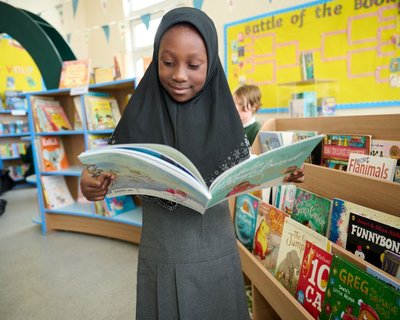
We'd love to keep in touch
Sign up to our regular newsletter and we'll send you our high-quality classroom resources, share our events, latest training and CPD opportunities straight to your inbox.
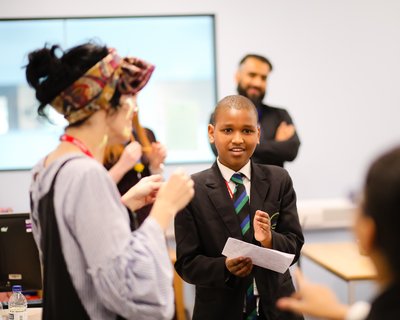
Multimodal reading
Download the first paper in our Future of Literacy series which explores how we must redefine what it means to be a reader in the digital, audio and visual age.

Reading for pleasure resources, programmes and training opportunities
Primary
-
Engage with research and develop sustainable strategies to embed a culture of reading in your school and classroom.Book now
-
We work with schools across the country to refresh and restock their libraries and book corners, and embed reading for pleasure in teaching practice. We believe school...Learn more
-
Reading for enjoyment is key to improving literacy skills. The Young Readers Programme runs fun events where children can choose books to take home and keep.Learn more
-
Encourage reading for pleasure in your school with these fantastic tips and ideas.Learn more
-
Celebrate reading and inspire children with our themed book lists.Learn more
-
Understand the latest findings on children and young people's reading aged 5 to 18, and discover fun ways to explore and inspire reading for enjoyment through...Learn more
-
The Power of Reading is a proven literacy programme from the Centre for Literacy in Primary Education (CLPE) that boosts reading and writing attainment.Book now
Secondary
-
Explore how to develop a culture of reading for pleasure in school and gain ideas on supporting students’ reading for enjoyment at home.Learn more
-
Our 2026 conference speakers have been announced. Check back here for the latest updates on speakers and workshops. Booking now open.Book your place
-
A 12-week intervention that helps students discover the joy of reading. Using an oracy-led, collaborative approach, it shows that reading can be collaborative, social, and...Learn more
Related research reports
-
This report outlines findings on children and young people's attitudes and behaviours around listening to audiobooks and podcasts.Learn more
-
This report discusses the enduring importance of our Young Readers Programme for providing children with impactful positive reading experiences and opportunities to choose...Learn more
-
Report on children and young people's engagement with audiobooks based on our 2021 Annual Literacy ReviewLearn more
-
This report draws on data collected in early 2023 from 64,066 children and young people aged 8 to 18 from across the UK to explore the attitudes and beliefs of comic readersLearn more
-
Teachers’ experiences of, and attitudes to, using ebooks to support children's reading for enjoyment.Learn more
Related blogs
-
If you're wondering whether or not to recruit and train Pupil Librarians for my school library, then read our blog and discover why Pupil Library Assistants, or Pupil...Learn more
-
Our school library is a well-stocked, welcoming space and though pupils read when they’re in there, but when asked if they are readers, pupils don’t seem to recognise that...Learn more
More activity ideas and guidance
-
Guidance for supporting young children to build joyful experiences of books and stories alongside the skills they will need to develop to prepare them for reading.Learn more
-
Our easy-to-deliver transition activities make sure that reading for pleasure and writing for enjoyment is place at the heart of welcoming children back to school.Learn more
-
Discover how Dormers Wells High School, a member school, applied CPD insights to develop a whole-school reading for pleasure ethos, including creation of their own reading...Learn more
